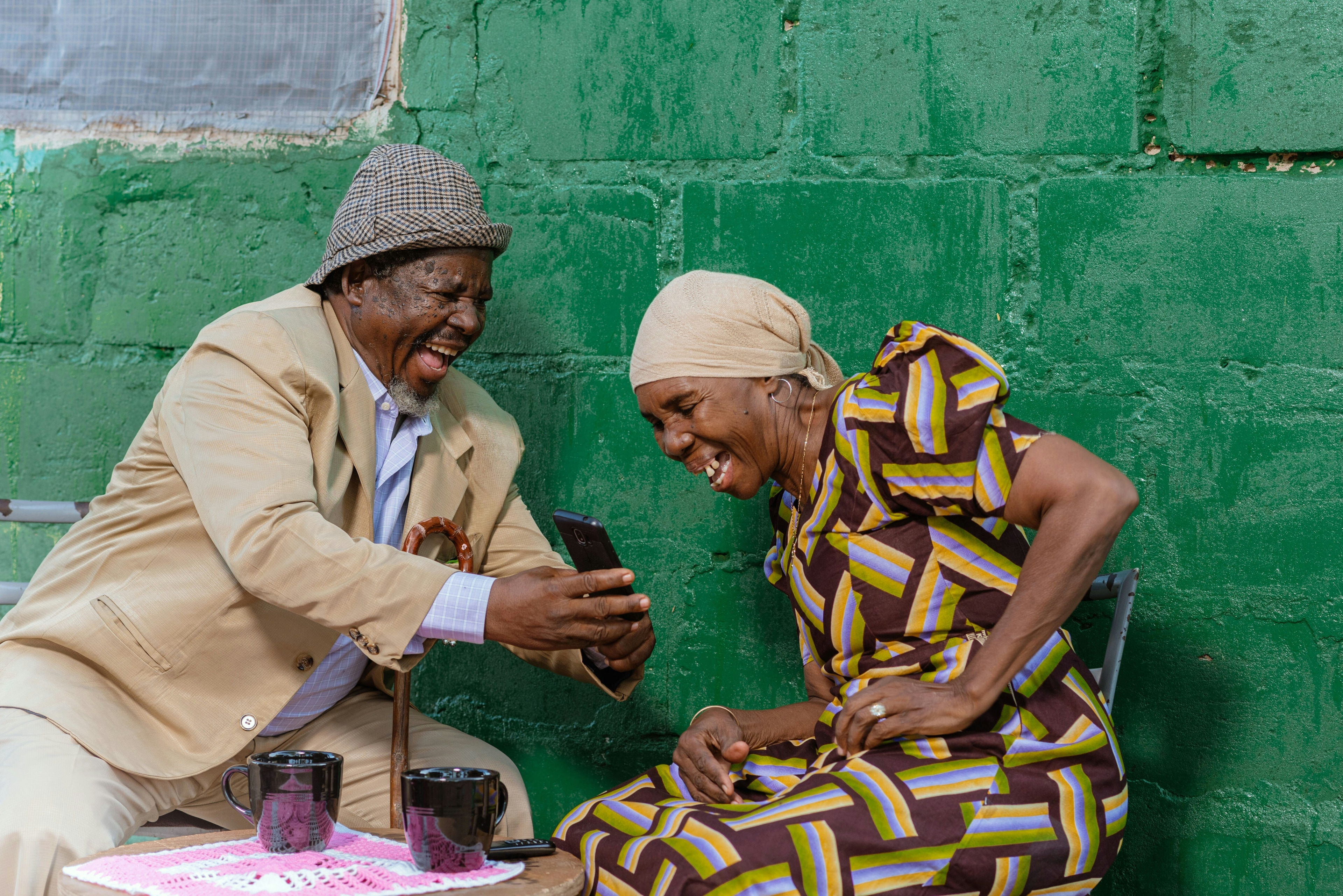Love your neighbour: Islam, Judaism and Christianity come together over COVID-19

Leaders from all three faiths call for unity in the face of coronavirus. Image: Reuters/Henry Nicholls
• Faith leaders from Christianity, Judaism and Islam support government efforts to control the coronavirus.
• Young men and women of faith can supply their digital know-how to build good communication during the crisis.
• Discussions are taking place about how the three religions can collaborate on charitable initiatives.
The COVID-19 global pandemic requires an immediate, whole-of society approach to prevent the transmission of the virus. During this time of uncertainty, faith leaders such as ourselves have turned to our religious texts and theology to find comfort for the community and encourage safe practices.
We have seen fellow prominent faith leaders from Christianity, Judaism and Islam issuing opinions, guidance documents – and even fatwas – to their communities that re-analyse religious practices and provide theological opinions on how faith practices or rituals can be adapted to meet the response of COVID-19 and implement social distancing.
Listen to all three faith leaders in conversation in this podcast
To slow the spread of the virus, we’ve taken to media, email and radio to conduct daily prayers and worship, mobilize individual volunteers to serve the elderly and at risk. We’ve engaged in discussions surrounding personal well-being and found new ways to communicate to our communities the importance of listening to the safety guidelines promoted by governments and the World Health Organization (WHO).
“The ability to go to your church or synagogue or mosque in a hard time is really important to people,” empathized Rabbi Sharon Brous in the LA Times. Nevertheless, she practised social distancing and engaged with her community via virtual platforms, as recommended by medical and government authorities. She exhorted her synagogue members to find “resilience and level-headedness and kindness and cooperation precisely in their moment of greatest vulnerability”.
Lessons from the Abrahamic faiths
As some individuals may be wary of following the preventative messages pertaining to COVID-19 by government and international organizations, faith actors should utilize religious teachings to reiterate the importance of these measures for the safety of the community. The Abrahamic faiths all have teachings that profess the importance of taking action to assist others and save lives.
• The Bible encourages followers to “show me your faith apart from your works, and I will show you my faith by my works”.
• The Quran tells us: “If anyone saved a life it would be as if he saved the life of the whole humanity.”
• In Judaism, the preservation of human life takes precedence over all other commandments, as emphasized in the Talmud.
In understanding how these teachings emphasize the importance of taking action, communities can be encouraged to follow government-implemented measures and practice social distancing in order to protect themselves.
'Cooperate to combat the disease'
Muslim clerics have emphasized regulations issued by governments by creating fatwas calling for a halt in organized religious gatherings and encourage communities to adhere to government calls of social distancing and self-isolating. Prominent Muslim scholar Shaykh Bin Abdullah Bin Bayyah, Chairman of the United Arab Emirates Council for Fatwa and President of the Forum for Promoting Peace in Muslim Societies, issued a fatwa calling on the community to obey the directives and instruction of governments in order, “to cooperate to combat the disease and halt its dissemination”.
Pope Francis has urged Christians everywhere to unite in shared moments of prayer, adding: “Let us remain united. Let us make our closeness felt toward those persons who are the most lonely and tried.” Russell Moore, of the Ethics and Religious Liberty Commission of the Southern Baptist Convention, responding to ignoring the plight of the elderly in the pandemic, said in the New York Times: “Each human life is more significant than a trillion-dollar gross national product. Stocks and bonds are important, yes, but human beings are created in the image of God.”
Local religious actors should use the proclamations of global religious leaders as a model to craft context-specific messaging for their local communities surrounding COVID-19. Statements by religious leaders are essential not only to raise awareness about preventative measures, but also serve as a reinforcement mechanism of government messaging. Although governments and health officials have issued advice to safeguard communities from COVID-19, we have seen religious leaders and actors fail to adhere to the calls and continue to engage communities in religious gatherings. To rectify these situations, religious leaders and communities from the same religious or faith tradition should directly reach out to those failing to abide by guidelines. If engaged in theological discussions about the protection of human life, we may see religious leaders halt gatherings and implement social-distancing guidelines.
It is important for religious actors to encourage and implement preventative measures with an inclusive focus. As noted in the Peacemakers Network’s “Six ways religious and traditional actors can prevent the spread of COVID-19 in their communities”, youth can serve in a critical capacity to support digital communication, especially as they have been at the forefront as users of social media and technology. As modern technology is still a recent development, religious and traditional leaders may lack a concrete understanding of how to effectively use technological platforms to communicate with a wide audience. In addition, messages developed and communicated by young people are more likely to resonate with their peers. At the All Dulles Area Muslim Society (ADAMS Center), youth have assisted the imams in engaging in virtual platforms, such as Facebook, to ensure the continuation of educational programming and Friday reflections, from distance.
Therefore, communities and leaders should seek to actively partner with youth in developing messages, assisting with the utilization of technology and social media as a connective communication mechanism during this period of social distancing. By supporting youth inclusion in local initiatives, young women and men of faith can play an important role in connecting and communicating with their peers and communities at large. The Washington Hebrew Congregation has noted the participation in youth programming has nearly doubled since it took exclusively to virtual platforms. The trends we have noticed pertaining to youth engagement in religious communities during the COVID-19 pandemic could be viewed as a positive outcome that can be further integrated into future programming.
Quite often, religious texts have been misinterpreted to justify patriarchy and gender-based inequalities, which has resulted in women unable to hold religious leadership positions and unable to attend and/or participate in prayers and gatherings. Since a majority of religious practices are now conducted at home on the family level, religious leaders should encourage female participation. Through the use of virtual worship and discussion, we have seen women continue their spirituality and faith practices as well as maintain social and supportive connections with women in the community. For instance, at NorthWood Church, Texas, the women's ministry has done an incredible job, not just in moving their Bible study online, but in organizing online coordination to take the elderly to the hospital, to providing them with meals, as well as organizing and providing lunches for impoverished children.
Religious leaders also have a role to oppose scapegoating other religions and incitements to bigotry or violence. As we are now living in a virtual world, solidarity between religions and faith is critical. It must be understood that not all faith communities have the capacity to virtually share information regarding COVID-19 and best practices to avoid transmission. We call on those communities fortunate enough to have the means to widely communicate and assist the most vulnerable to seek their neighbours of other faiths. Consider partnering with other community or faith organizations if you do not have access to technology or help to bring groceries and medication to those who are elderly or immune-compromised.
Since the outbreak of COVID-19, we have seen an increase in multifaith collaboration in regards of expressing solidarity. However, there is still a discussion within interfaith communities about the best mechanism to create a collaborative response through charitable action. We have seen many charitable initiatives, such as a young boy in Virginia collecting protective gear from hotels and donating to hospitals, but we are presently unaware of charitable responses on the multifaith level. Nevertheless, discussions occurring every day by multifaith actors is a positive sign for charitable collaboration in the very near future.
What is the World Economic Forum doing about the coronavirus outbreak?
This virus does not discriminate based on religion, race or gender. The spread of the virus will only be halted when we as human beings come to practice social distancing while supporting our communities, loving our neighbours as yourself.
Don't miss any update on this topic
Create a free account and access your personalized content collection with our latest publications and analyses.
License and Republishing
World Economic Forum articles may be republished in accordance with the Creative Commons Attribution-NonCommercial-NoDerivatives 4.0 International Public License, and in accordance with our Terms of Use.
The views expressed in this article are those of the author alone and not the World Economic Forum.
Stay up to date:
Roles of Religion
Related topics:
Forum Stories newsletter
Bringing you weekly curated insights and analysis on the global issues that matter.






